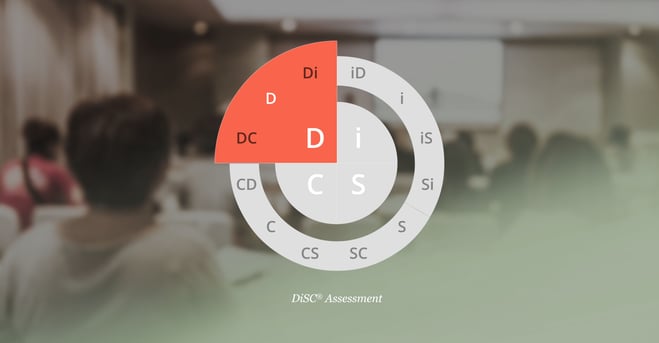From DiSC Assessment to Myers-Briggs, 5 Assessments to Check Out
In this blog we investigate some popular personal assessments to give you more insight into the information each assessment reveals and how you can use that info at your organization.
Since the 1980s, millions of people each year take personal assessments. The tests are used to gain insight into what makes people tick. The information each test provides is fascinating, but it’s how you use the info that makes it truly useful.
If you’re in the research phase and just begining to learn the differences between DiSC Assessment and other top personality assessments, ready to purchase an assessment to use in your organization, or just curious what’s out there, read on.
The 2-Part Power of Assessments
The power of any assessment lies in two parts:
- What the results tell you about yourself or your people
- How you use those results to take action
What the results tell you
Assessment results come in two different flavors and it’s important to know the difference so that you can make the most of what your results tell you. In the assessment community, results are categorized as either “state” or “trait.”
State
Is the assessment giving you info about your team’s present state of mind? These types of assessments tend to surface things like mood, sentiment, current levels of engagement and other fluid emotions and feelings that are not indicative of predicting behavior or needs.
Trait
Assessments that reveal information about traits tell you about less fluid aspects of your people. These assessments give you information about the skills, competencies and strengths of your people. By teaching you to see your and your people’s top traits you can approach your team most effectively.
How you use those results to take action
It’s all about how you use the information the assessments reveal to align your action strategy and tactics to what you know about your people.
For example, if assessment results tell you that your people value rewarding team success and cooperation, you’ll want to make sure that you build that sort of mentality into your strategy. If they reveal that some people prefer to reward competition and individual success you will want to know that too, for it may not align to the team.
Picking the Assessment That’s Best for You
We put this list together so you can know what each is about and match yourself or your team to the assessment that makes the most sense for you. You’ll find out:
- Who is this for
- What the results look like
- Cost/How to order
- What you can do with the results
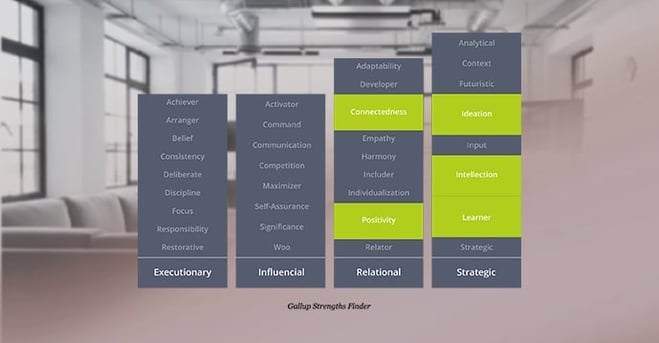
1. StrengthsFinder (SF)
StrengthsFinder is an online tool that helps individuals identify, understand and maximize their strengths. The assessment is the culmination of more than 50 years of American Psychologist Dr. Donald O. Clifton's lifelong work, which has led to more than 16 million people worldwide taking the test.
Who is this for/what they offer
- Created to help job seekers match to their best vocation
- Emailed information and updates that can help you use your strengths
- Additional resources such as reports, testimonials and tools for action
What do results look like
After you register and set up an account, the 45 minute test was challenging. Each question contained two sentences, on opposite ends, on a scale of strongly disagree to strongly agree. You have 20 seconds to answer which question you relate to most. The advice at the beginning proved valuable—stay with your first choice, don’t overthink it.
An instant action guide is created with your results. The personal guide consists of 3 parts; awareness, application and achievement. These parts were each broken down into plans that are actionable in your life. This could be valuable for job seekers. As it was very accurate in matching my professions, it may be accurate in matching you to your next career.
Cost/How to order
There are two options in FS: the top 5 strengths access that I took ($19.99) or the all 34 strengths access ($69.00).
2. DiSC Assessment
DiSC® is a personal assessment tool used by over 1 million professionals to improve work communication, productivity and teamwork. DiSC stands for a language of 4 quadrants in a person’s personality: Dominance, Influence, Steadiness, Conscientiousness. Each has behaviors that are associated with that style.
Who is this for/what they offer
- Designed for people in a work team, a sales relationship, a leadership position or other relationships
- A 20 minute test of statements on a scale of strongly disagree to strongly agree
- A detailed report containing a common language (the DiSC) that people can use to better understand themselves and adapt their behaviors with others
- Take-a-ways and suggestions such as training activities, pinterest boards
What do results look like
The results are offered in a dense 20 page report. If you are a team member or salesperson and want to see how traits act in relation to work this could be useful. However the sheer volume of information and the DiSC graph were complicated to decipher.
I took the DiSC Workplace Profile to see my team traits and how to connect and interact with colleagues whose priorities and preferences are different. My strongest trait is a “D.” Dominance has a drive to get results and bold actions, as well as a tendency to be straightforward. This is true of myself. And it feels plenty to contemplate.
Cost/How to order
Easily accessed online, the test I took was $59.25. They offer a variety of price packages up to a Personal Development Paper Profile® (set of 10) DiSC profiles for a broader range of learners for $299.50 each.
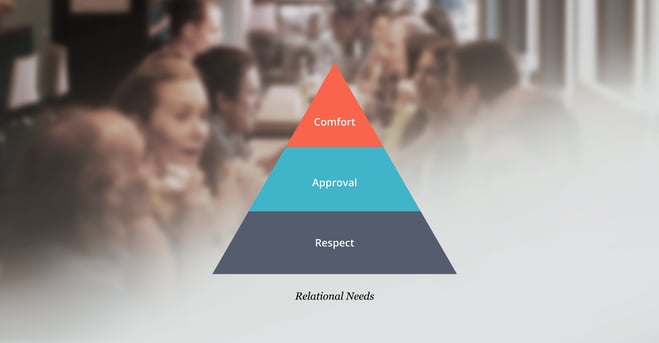
2. Relational Needs
The Relational Needs Assessment is offered from my employer. By teaching you to see your top relational needs you can help grow others. You can approach your team most effectively. They offer many tools to support your self discovery and relational needs.
Who is this for/what they offer
- A 15 minute test, structured as statements and a feedback scale of strongly disagree to strongly agree
- For leaders, mentors, coaches, managers, anyone who champions people
- Value-added in platform: create Notes, Home to document your journey, email
- Many ways to assess, learn, contemplate, share and reach out
- Designed to help you gain a better understanding of your own needs and then equip you in how to give to others
- Coaching and mentoring
What do results look like
After taking the test your 3 Top Relational Needs are revealed. Mine were: Respect, Approval and Comfort. From there, continue the journey by learning about your 3 Relational Needs in depth. A short animation and bullet points of important characteristics were helpful and easy to contemplate. With your results, you are encouraged to share by email, make notes and explore the other Relational Needs traits to learn more about yourself and others. I found myself making notes and emailing to my husband in the first few minutes!
Cost/How to order
Relational Needs assessment is available on gloo.us to all Gloo customers. See more about Gloo and request a demo at gloo.us/pricing.
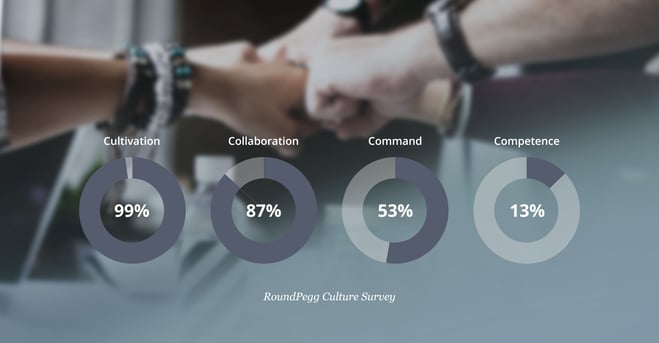
4. RoundPegg
RoundPegg offers a cultural assessment based on how employees core values drive behaviours. By aggregating results they promise you will know your company culture and be able to engage your team by aligning your operational strategy (think: how you hire, reward, communicate, make decisions and engage) to your people.
Who is this for/what they offer
- A free 7-minute Individual RoundPegg Assessment
- An exercise consists of putting work characteristics (value individuality, creativity, more pay for accomplishment) into the yes or no column
- Tailored to organization managers to: ID best culture-fit job candidates, coach better and measure and improve engagement of employees
What do results look like
The test was easy, if slightly boring. My culture or dominant trait was identified as Cultivation. “Cultivation cultures focus is on potential and providing opportunities for growth, with less importance placed on rules and controls.” It rang true to me. The action they recommend is to leverage my strengths: Suggest and encourage opportunities to try new things and develop new capacities. The real power came when I saw how my results compared to others I work with and I was able to use that information to adjust my approach to what we have in common and where we have differences.
Cost/How to order
They encourage you to take the free and fast assessment and get in touch to learn more. Their products, profiles, hiring and coaching are all priced separately.
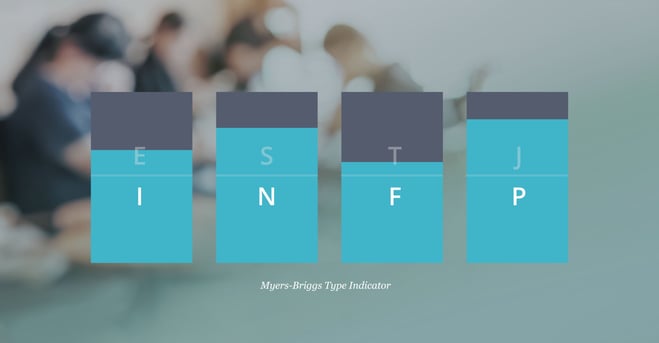
5. Myers-Briggs
This is a popular personality test, taken by more than 2.5 million people a year, and used by 89 of the Fortune 100 companies.The assessment is formulated from the work of Carl Jung. The Myers-Briggs Type Indicator (MBTI) divides people into 16 distinct types, combinations of introverts, extroverts, thinkers, feelers, the judging or perceptive. At it’s core the test is designed to help you understand what makes you tick, how you relate to others, and how you can benefit from this knowledge in everyday life.
Who is this for/what they offer
- A 15 minute, 93 question scale of degrees test & 30 minute interactive learning session
- A framework and common language for referring to and discussing personality preferences
- They offer MBTI Assessments for individuals and for teams
- Additional resources include home account, testimonials and tools for action
What do results look like
The results are designed to help you identify your preferred way of doing things in 4 key areas: directing and receiving energy, taking in information, making decisions and approaching the outside world. Your natural preferences in these areas sort into one of 16 personality types. The result is your own 4 letter personality type that corresponds with your 4 dominant traits. Mine was INFP: Introversion/ Intuition/ Feeling/ Perceiving.
With my INFP category, I saw how I process information and insight into what would allow me to thrive. Additionally, you also get a home account page that offers ways of exploring your traits and how they relate to others. The goal is to understand your type enough to use it to improve your life experience.
Cost/How to order
Starting at $49.95. Available online.
What you can do with the results
No matter which assessment you choose to use at your organization, you absolutely need to apply what you learn if you want to make the most of your investment.
To get the scoop on how to use assessment results I talked with Dr. Peter Larson, PhD. Peter is a licensed clinical psychologist with deep experience with assessments. Here’s what he had to say.
“Think of an assessment as an onion. You peel away the layers of information, digging deeper into more information each time.”
Some layers to start with are:
- The Aha! Moment: Self discovery aspect
- Match: How can my job fit with the way I’m wired?
- Application: How can I align the operational strategy of my team or organization to the results?
- How can I Champion others?
Self Discovery
The first layer is the self discovery. Here the simplest assessment is the best, says Larson. With SF and Gloo, learning your top 3 traits or relational needs is enough to start on a path of self exploration. You don’t want to be bogged down with complicated reports and graphs.
Career
When it comes to using assessment results to match to the best career, the challenge is to examine your chosen career to see how you can operate more effectively. Or to start by choosing a career that aligns with your traits.
Application
Think about the ways you can make adjustments with your teams and groups based on what you learn from the assessment results. For example, if you are experiencing high employee turnover, evaluate what might be misaligned. Do managers have distinctly different traits and expectations than employees? Do incentive plans align with how employees want to be rewarded?
Champion Others
To peel away the fourth layer, the assessment results have to make it easy to understand others and how you relate to them. Assessment results can have a tremendous impact in the quality of mentor type relationships. Through improved communication, Champions (mentors, therapists, coaches, managers, pastors, just to name a few) can make connections deeper and inspire even more profound growth from their people.
Key Takeaways
There is a lot to unpack when it comes to assessments. But a little information can go a long way towards getting the most from your investment.
Two types of information
Assessments reveal two core types of information:
- State of mind (emotions, sentiments, feelings etc…)
- Hardwired traits that are more permanent
The best assessments have easy to interpret results
An assessment is only as good as it’s results. Make sure to select an assessment that provides results you are able to interpret. Often times the most simple assessment results are the best.
Get the results in the hands of Champions
Champions are those people who spend their energy to help others grow and develop in their lives, careers and more. Make sure to spend time with managers, coaches, mentors and anyone else in your organization who can use the assessment results to do what they do better.
Take action
It is never enough to just take an assessment. Have a plan for how you will use the results to adjust and tailor your strategy to your people.
No assessment holds the total truth. And they have diverse applications. Take the time to choose the assessment that makes sense for you and your organization.

